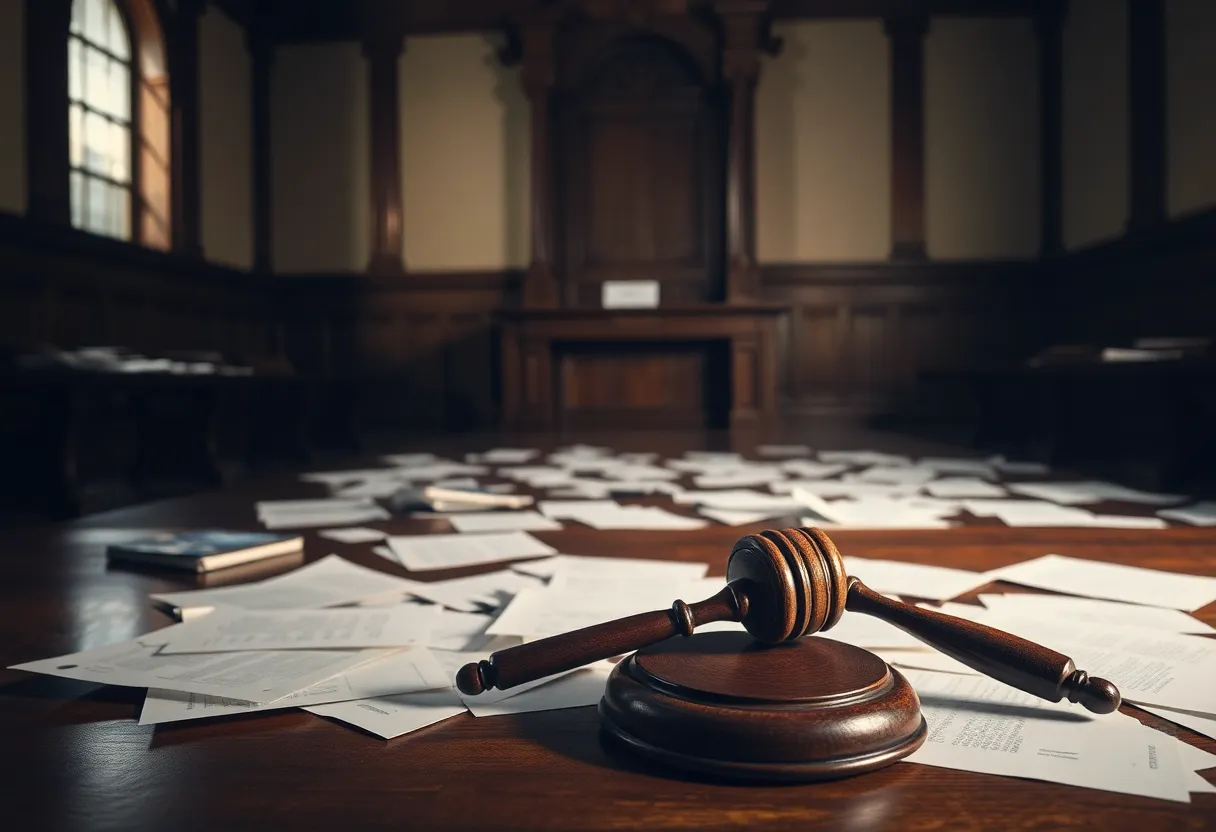News Summary
The Michigan Attorney General’s Office has decided not to investigate Detroit Mayor Mike Duggan over accusations of record destruction during his tenure as Wayne County prosecutor. This decision raises concerns, especially given the implications for wrongfully imprisoned individuals, as critical misdemeanor and felony records have allegedly been mishandled. Legal experts are puzzled, citing the statute of limitations as a barrier, but the integrity of the justice system remains under scrutiny as the consequences ripple through the community.
Detroit’s Mayor Duggan Escapes Scrutiny Over Destruction of Crucial Prosecutor Records
In an outcome that is raising eyebrows and concern throughout the community, the Michigan Attorney General’s Office has announced it will not investigate Detroit Mayor Mike Duggan regarding accusations of record destruction. This comes after a letter from Mark Craighead, a man wrongfully convicted of murder and exonerated after more than seven years. The events in question transpired during Duggan’s time as Wayne County prosecutor from 2001 to 2004.
What Happens Next?
Legal experts are scratching their heads over this decision. The lead in the AG’s office, Robert Liddell, pointed out that any potential investigation is barred due to the statute of limitations surrounding the alleged destruction of records. The heart of the matter stems from claims that critical misdemeanor and felony records from before 1995 were improperly handled and destroyed in violation of state law. These records are not just paperwork; they are lifelines for justice, particularly the files of defendants who are serving life sentences, which must be retained for a minimum of 50 years or until their death under Michigan law.
The Seriousness of Record Preservation
If anyone thinks that the destruction of such records is trivial, think again. Violating this law can lead to a maximum of two years in prison. Sadly, the events in question took place before this law was reinforced, complicating accountability. Craighead, among others, stresses that even though the statute of limitations has expired, understanding what transpired is vital for those innocent people still fighting for their freedom.
Impact on Wrongfully Imprisoned Individuals
The records that were destroyed included essential evidence like police reports, forensic results, and witness statements. All of these can be crucial in defending against wrongful convictions. Experts fear that the disappearance of these files makes it specifically difficult for individuals like Carl Hubbard and Mack Tiggart to prove their innocence. The destruction raises alarms, especially within the context of serious misconduct that flourished in the Detroit Homicide Division during Duggan’s tenure, which had its own issues with false confessions and federal investigations.
A Dark Cloud over the Justice System
When Wayne County Prosecutor Kym Worthy stepped into her role in 2004, she was reportedly shocked to find out the extent of file purging, particularly regarding homicide cases. According to her, records were systematically destroyed to clear space for incoming files, a strategy that raises red flags about the integrity of the prosecutorial process. Duggan himself maintains that he was completely unaware of any wrongdoing regarding record management, claiming that that responsibility lay with the Wayne County Building Department.
Continuing Dilemmas for the Convicted
The fallout from these record destructions does not just end at Duggan; it creates serious hurdles for Worthy’s Conviction Integrity Unit that was established to investigate claims of wrongful imprisonment. With critical documentation now lost, many individuals are left helpless, unable to access evidence that could potentially clear their names. The Michigan Innocence Project has reported significant challenges in retrieving records for prisoners due to this destruction.
Systemic Challenges and Public Concern
Moreover, a broader pattern emerges from emails and public documents indicating that similar issues of deletion and concealment of information are troubling parts of Duggan’s current administration. This ongoing scenario raises serious questions about the accountability of those at the helm of justice in the city and the systematic suppression of evidence.
What Lies Ahead?
As Detroit residents follow these developments, one thing becomes clear: the relationship between justice and accountability is fraught with challenges that may very well need urgent addressing. The destruction of these records has far-reaching implications for those impacted, calling for a deeper examination of how justice is managed and maintained.
Deeper Dive: News & Info About This Topic
HERE Resources
Detroit’s Renovation Surge: Transforming Homes and Futures
Renovation of Historic Bonstelle Theater into AC Hotel
Building Detroit’s Future: From Historical Foundations to Modern Revitalization
Additional Resources
- Metro Times: Attorney General Won’t Investigate Duggan
- Click on Detroit: Mayor Celebrates NFL Draft Attendance Record
- Free Press: Duggan Administration Relents on Records
- Wikipedia: Mike Duggan
- Detroit News: Duggan’s Political Plans for Future








